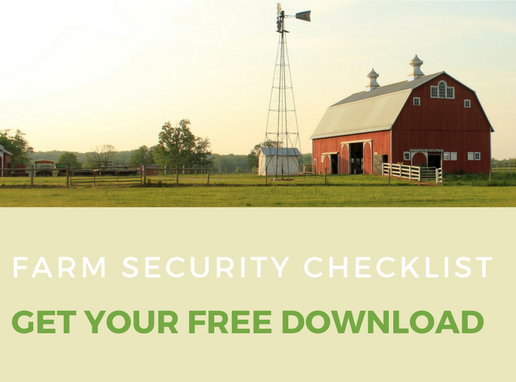Some like it hot. The rest of us don’t do so hot in the heat. Whether you farm in humid Florida, dry Nevada or chilly Minnesota, heat stress is a risk for your livestock, your crops, and you.
What is heat stress?
Basically, heat stress is what happens when your body becomes unable to regulate your internal temperature and you start to “overheat”. Almost always, heat stress is the result of outward conditions (e.g. high temperatures, insufficient air movement, high humidity, etc.).
What are the effects of heat stress?
Not all animals can sweat enough to cool down, but in the case of creatures that can (essentially only humans and horses), dehydration is a common risk. For all the other animals that are not able to sufficiently perspire, heat stress is more of a danger than a threat. An animal experiencing heat stress, or heat exhaustion (what happens when heat stress is left unaddressed for too long), will show signs of sluggishness, heavy breathing, decreased feeding and increased water intake. Heat stress can lead to heat stroke, which has serious consequences and can even result in death.
How can you prevent heat stress?
You can protect your animals from getting heat stressed by taking 3 simple precautions: monitoring the temperature and humidity in your barn, ensuring your facility utilizes proper and sufficient ventilation and providing a steady supply of water for your livestock.
Monitoring temperature and humidity - Between hot, sunny days outside and the body heat produced by your animals inside, high temperature is a given at any livestock farm. Monitoring the temperature in your barn is important to ensure the health and comfort of your flock or herd. Monitor it from wherever you are with Smart Barn’s wireless temperature sensor. Humidity also builds up in your barn from a variety of sources, and contributes to the heat index in your barn. Monitor it and receive important alerts with Smart Barn’s wireless humidity sensor
Ventilation - Ensuring your barn is properly ventilated is important not only for the cooling breeze it offers your livestock, but also for the overall health of your flock or herd. If your barn, stable or poultry house isn’t sufficiently ventilated, it can quickly become a death trap for you and your animals as carbon dioxide and manure gases build up and become trapped inside. Make sure your ventilation system is always working, using Smart Barn’s voltage/power sensor to monitor the motors on your fans, curtains, automatic windows, or whatever system you use. Smart Barn will notify you immediately via phone, text, email, or through the Smart Barn app/website if your controller malfunctions or something goes awry.
Water supply - Your livestock (especially cattle) will drink more in the heat, and it will help them stay cool. Even for animals that don’t sweat much (namely pigs and chickens), dehydration is a risk in times of high heat and humidity. As the temperature rises, the water needs on a farm increase - especially if you use sprinklers or misters. Keep in mind that fogging systems like these are most effective in drier climates, as the water adds moisture to the air, potentially increasing the heat index if you’re already experiencing humidity. Use Smart Barn’s liquid level sensor to track the amount of water you have in your tanks, in conjunction with our water meter to get instantly notified if a pipe bursts and the water usage is too high.
Heat stress is a risk too many farmers take, endangering their livestock and themselves because of a lack of awareness of the conditions on their farms. You don’t have to be unaware - you can know. Smart Barn’s comprehensive line of monitoring equipment gives you peace of mind, helping you know whether your animals are safe and comfortable 24/7. Contact us today to let Smart Barn work for you!

